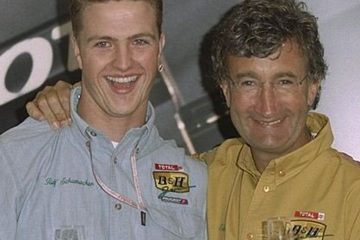The Enduring Legacy of John Cooper in Motorsport

Introduction to John Cooper
John Cooper, an iconic figure in the world of motorsport, is best known for his innovative contributions to racing cars and the establishment of the Cooper Car Company. His legacy reshaped motorsport, making it accessible to a broader audience and elevating the status of Formula One and rallying. As motorsport continues to evolve, understanding Cooper’s impact remains relevant, particularly regarding small, lightweight car designs and their influence on safety and performance.
The Foundations of Cooper’s Career
Born in 1923 in Surrey, England, John Cooper was introduced to engineering and racing at a young age through his family’s automotive business. He began his career in motorsport by building racing cars in the 1940s, eventually founding the Cooper Car Company with his father in 1946. The Cooper T-series became renowned for its rear-engine design, which was revolutionary at the time and set the stage for future racing cars.
Innovations and Achievements
Cooper’s most significant achievement came in the late 1950s and 1960s as his cars dominated the newly formed Formula One category. The Cooper T51, which debuted in 1959, was one of the first rear-engine cars to win a championship, leading the charge in a racing evolution that prioritised weight distribution and aerodynamics. His cars enabled drivers like Jack Brabham and Bruce McLaren to secure numerous titles, solidifying Cooper’s status in the sport.
Additionally, John Cooper made notable contributions outside of Formula One, including in the world of rallying. The Mini Cooper, released in 1961, quickly became synonymous with success in rally events, showcasing a compact car’s potential. The Mini’s lightweight nature and nimble handling contributed to major rally wins and solidified its place in automotive history.
The Lasting Impact of John Cooper
John Cooper passed away in 2001, but his influence continues to resonate within the motorsport community. His pioneering spirit has paved the way for modern racing design, leading to innovations in safety, aerodynamics, and performance efficiency. The small, agile vehicles he championed serve as today’s benchmarks for drivers and engineers alike.
Conclusion and Future Significance
As motorsport technology continues to advance, the principles John Cooper championed are more vital than ever. His focus on lightweight cars and efficient engineering remains relevant in contemporary discussions around environmental concerns and sustainability in the automotive industry. For racing enthusiasts and industry professionals, John Cooper’s legacy serves not only as an inspiration but also a call to innovate responsibly, ensuring that motorsport remains exciting and accessible for future generations.









